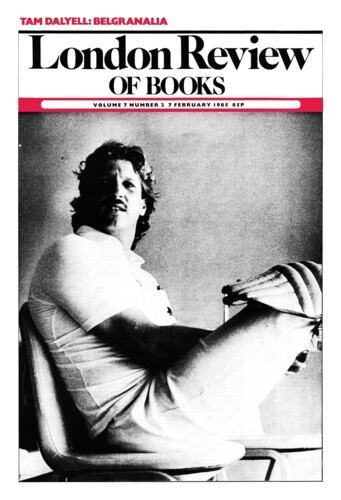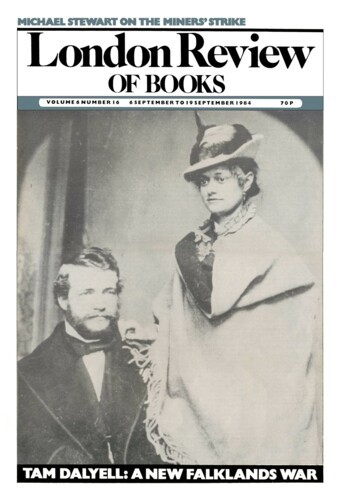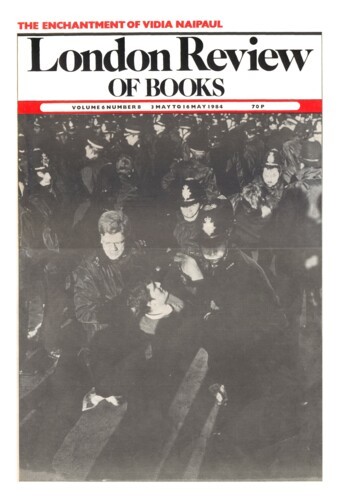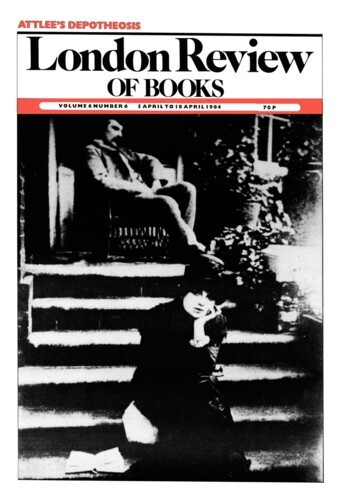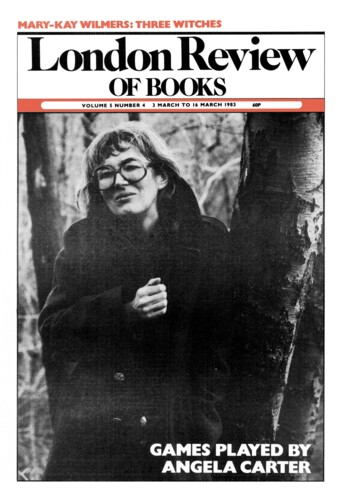Diary: The Belgrano Affair
Tam Dalyell, 7 February 1985
A campaigning politician is wise to be ever-alive to the possibility of being set-up and made to look ridiculous. In the light of the Belgrano affair, I do not doubt that I have accumulated a large and distinguished number of enemies, who would be only too delighted to see me slip on the ice. If a campaigner is proved hideously wrong in one matter, those who wish to destroy his case can gleefully point to the possibility of error in a related matter. My interest in the callous death of Miss Hilda Murrell – for such I was left in no doubt that it was by the courteous and concerned officers of West Mercia Police – was kindled by an anonymous phone call. An authoritative voice came through to my Commons Office-cum-Cupboard, and rather peremptorily told me to read an article in the New Statesman, ‘The Death of Miss Murrell’ by Judith Cook. Some two days later, since I read the New Statesman and the London Review of Books on trains and aircraft between London and Scotland, I glanced at Mrs Cook’s piece, and was arrested by the following passage: ‘Yet the Police told Rob Green, Miss Murrell’s nephew, that his aunt’s body was found much later, and then that it was found at 7 a.m. Rob Green took voluntary redundancy from the Navy a short time ago, having been a high-ranking Naval Intelligence officer with a crucial role in the Falklands War, for which he received a special citation. He does not consider himself a fanciful person.’ It dawned on me why, in all probability, I had been told by my anonymous caller – I still have no notion who it was – to read Judith Cook’s article.
